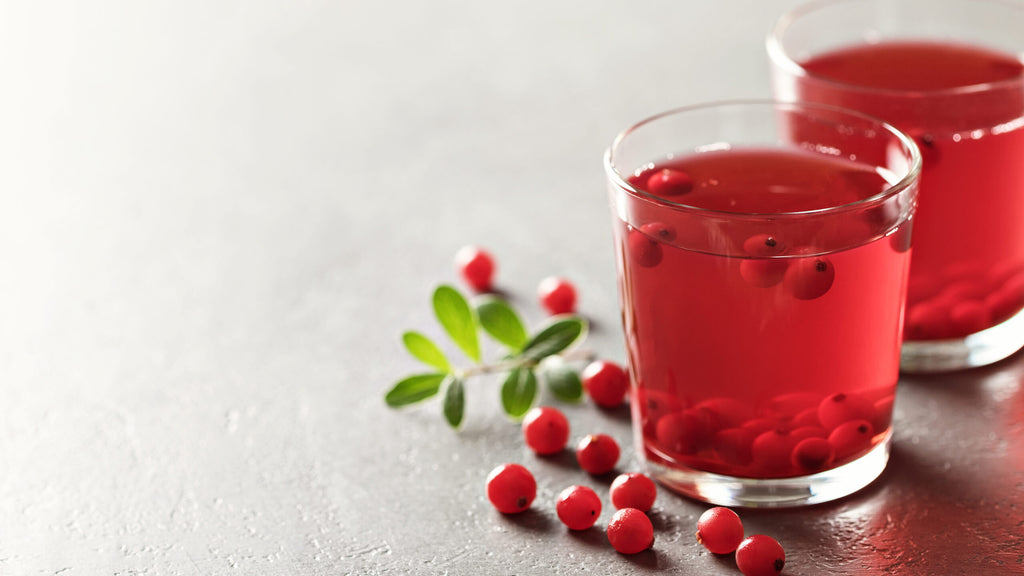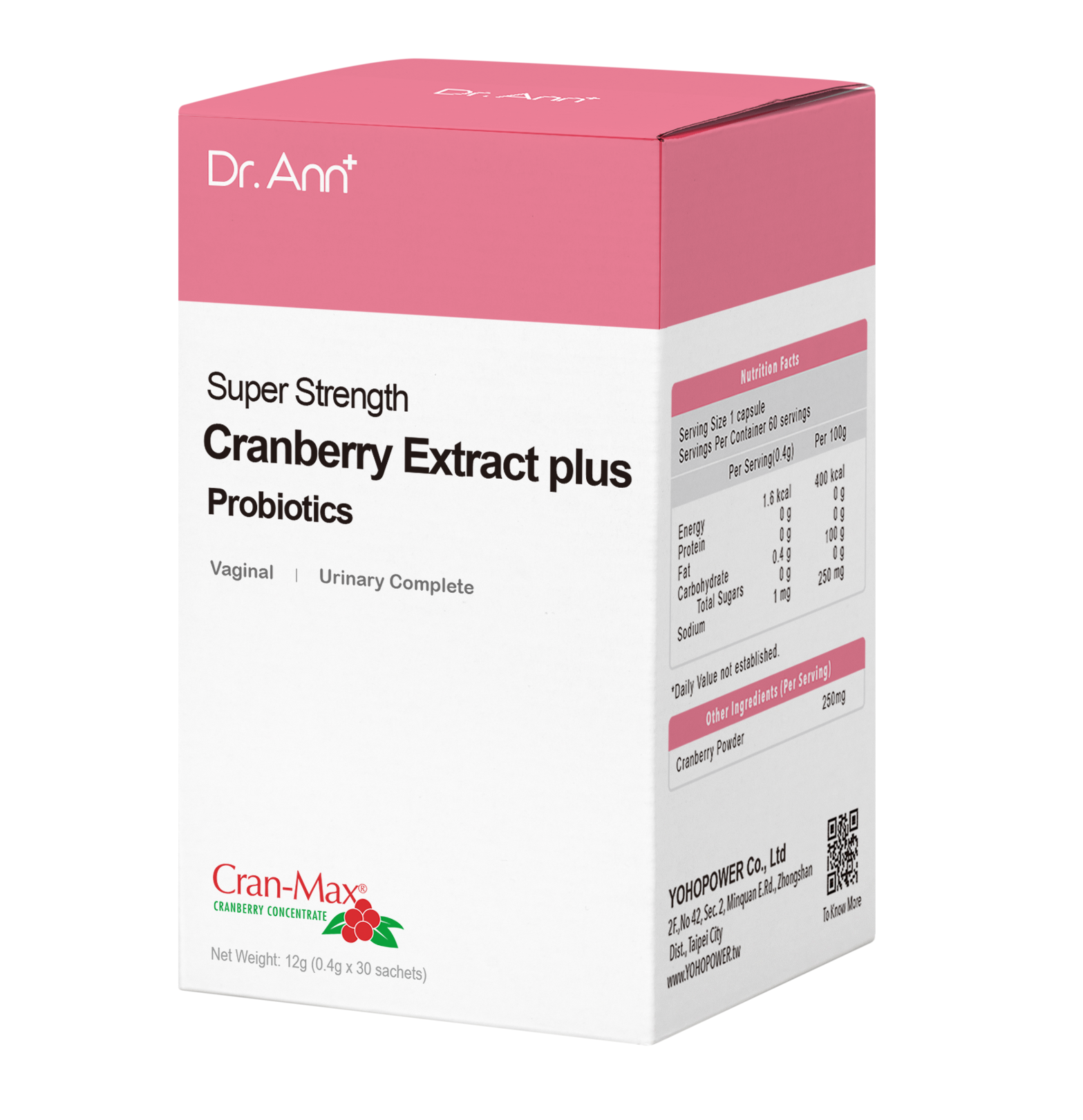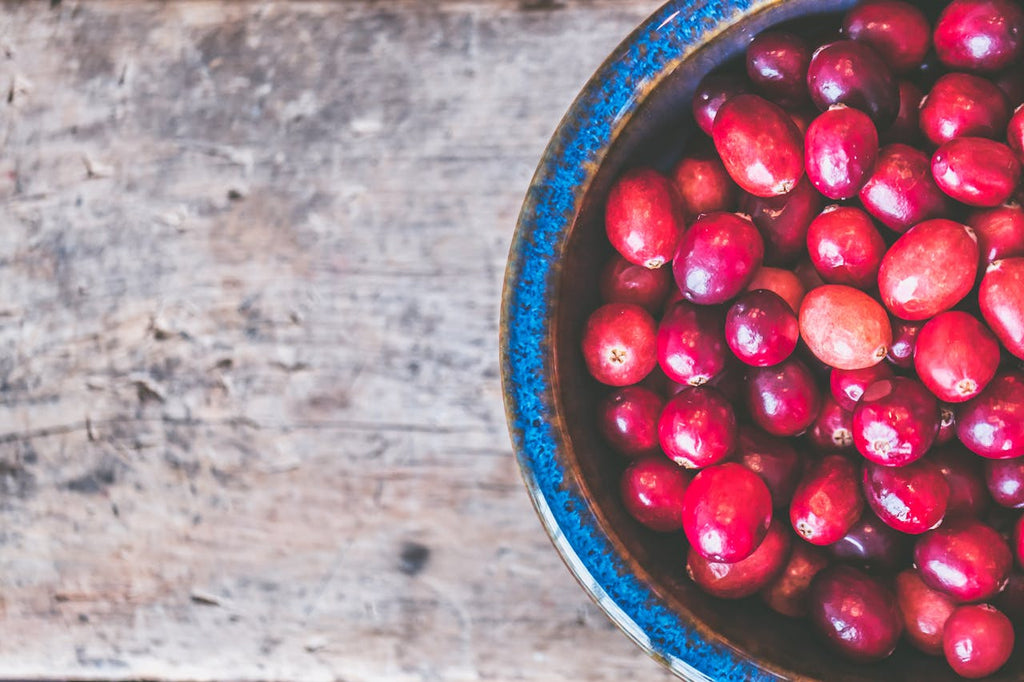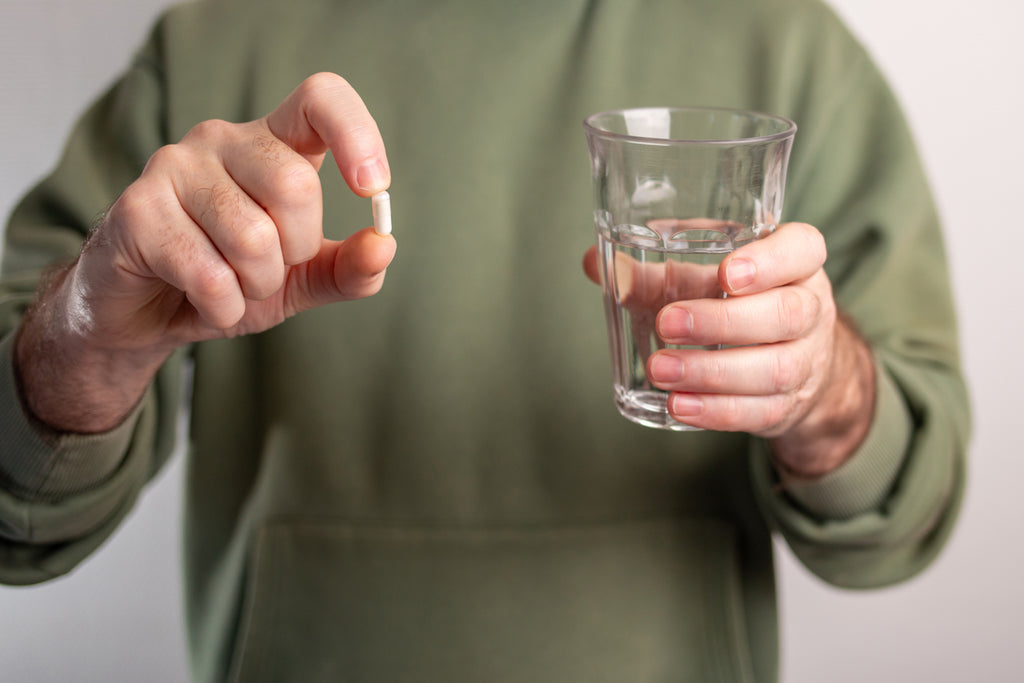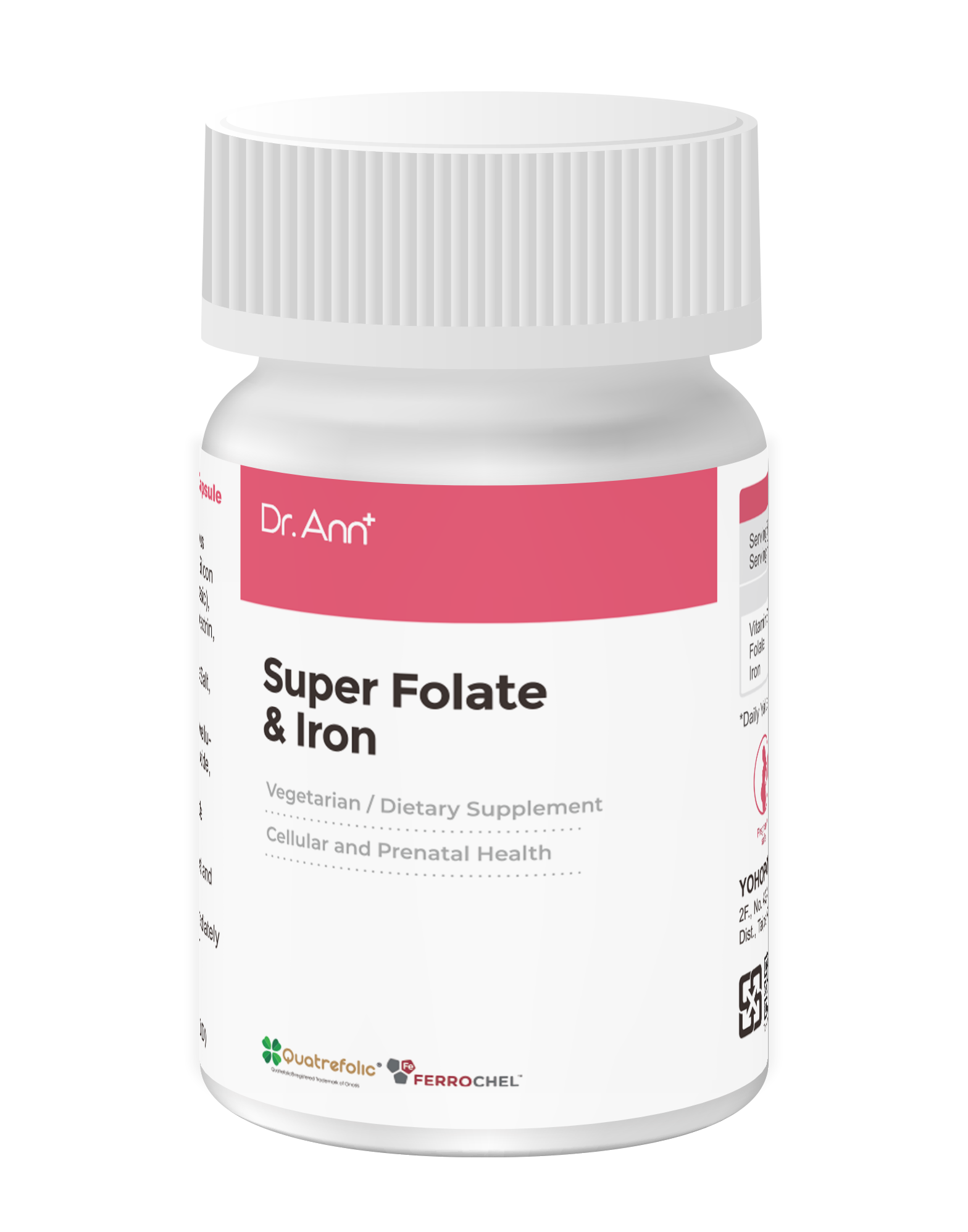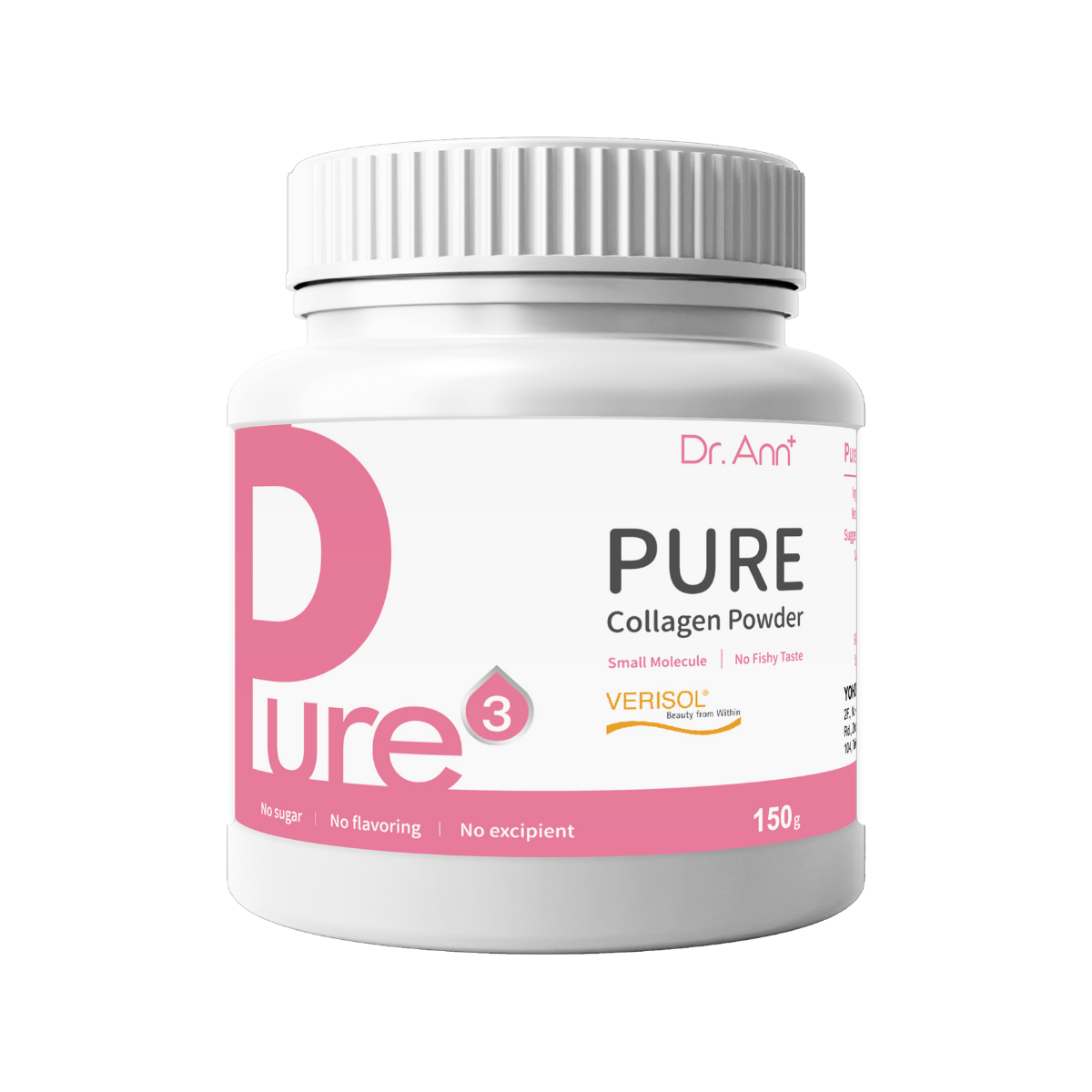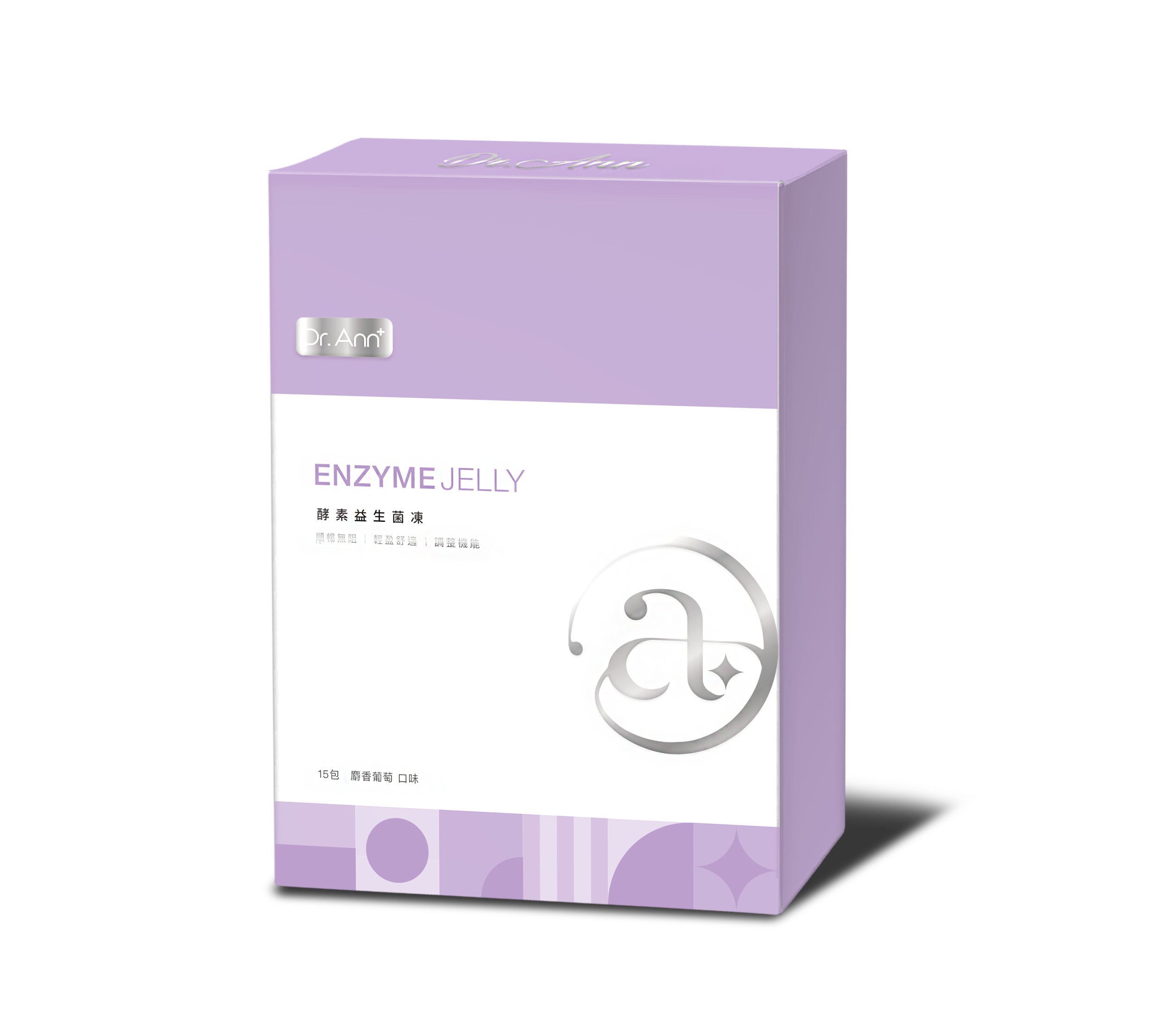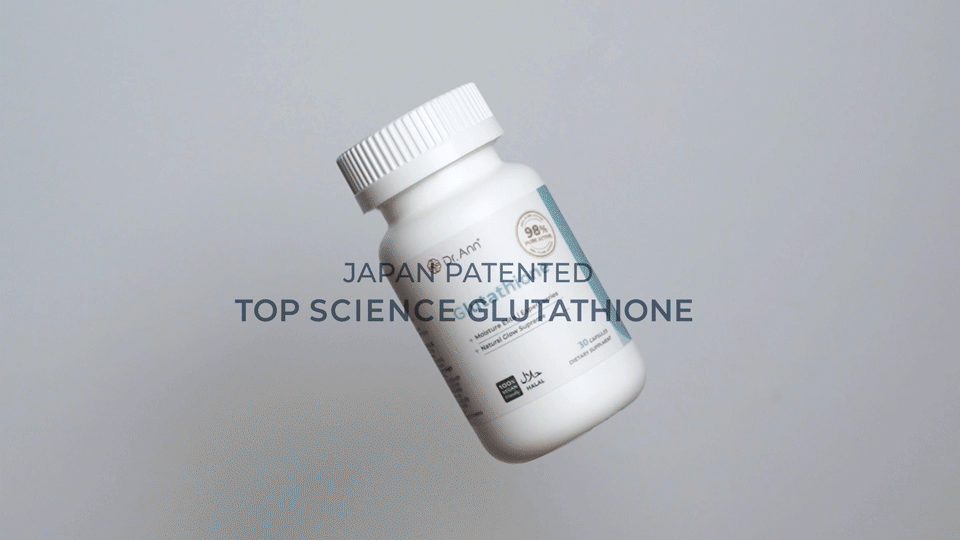




Voted #1 ingredients for weight loss
Real Voice of Our Community
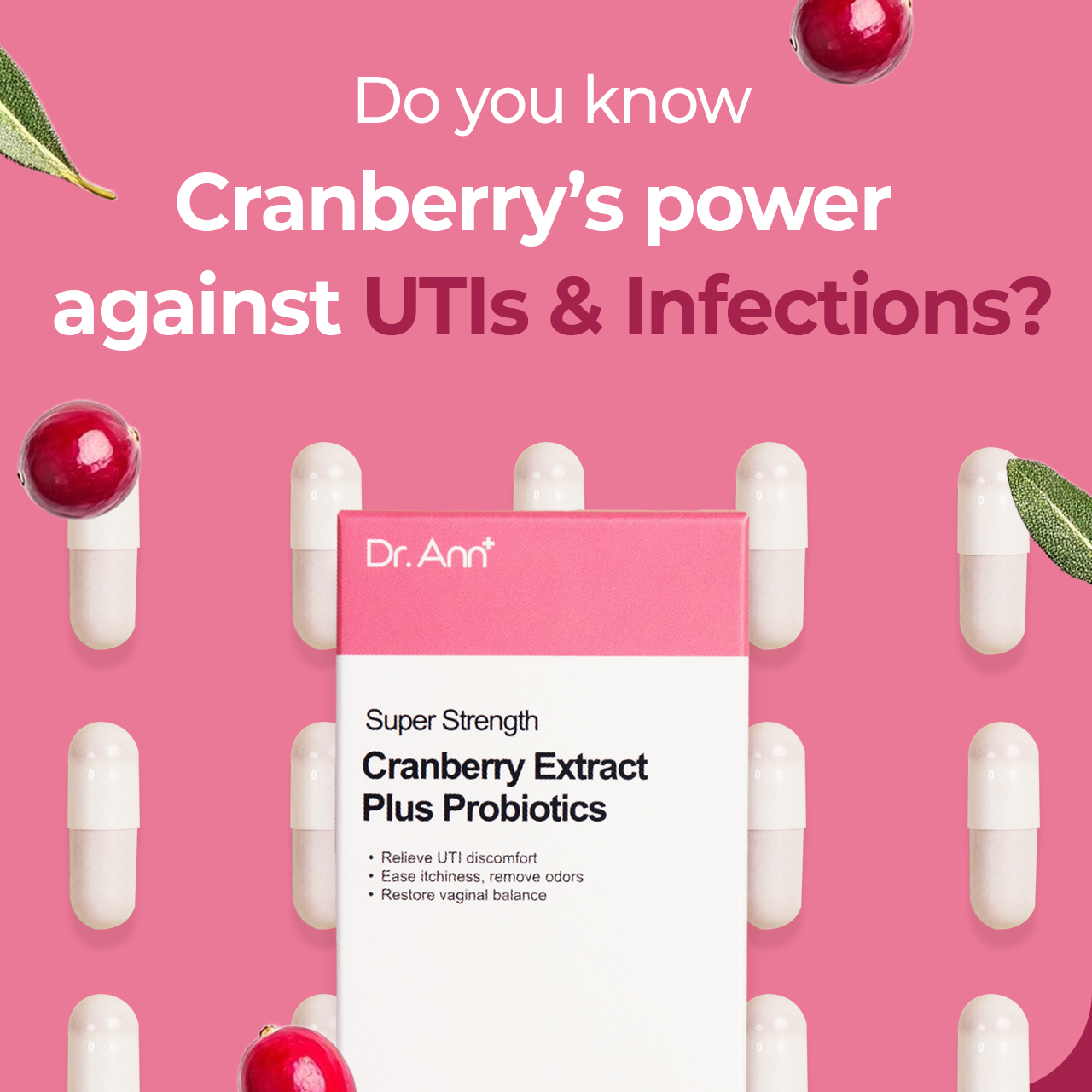




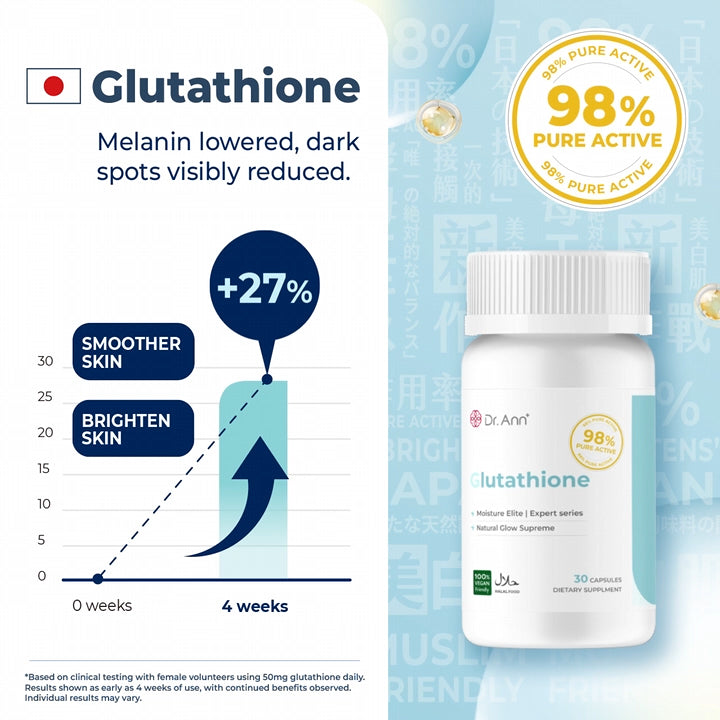


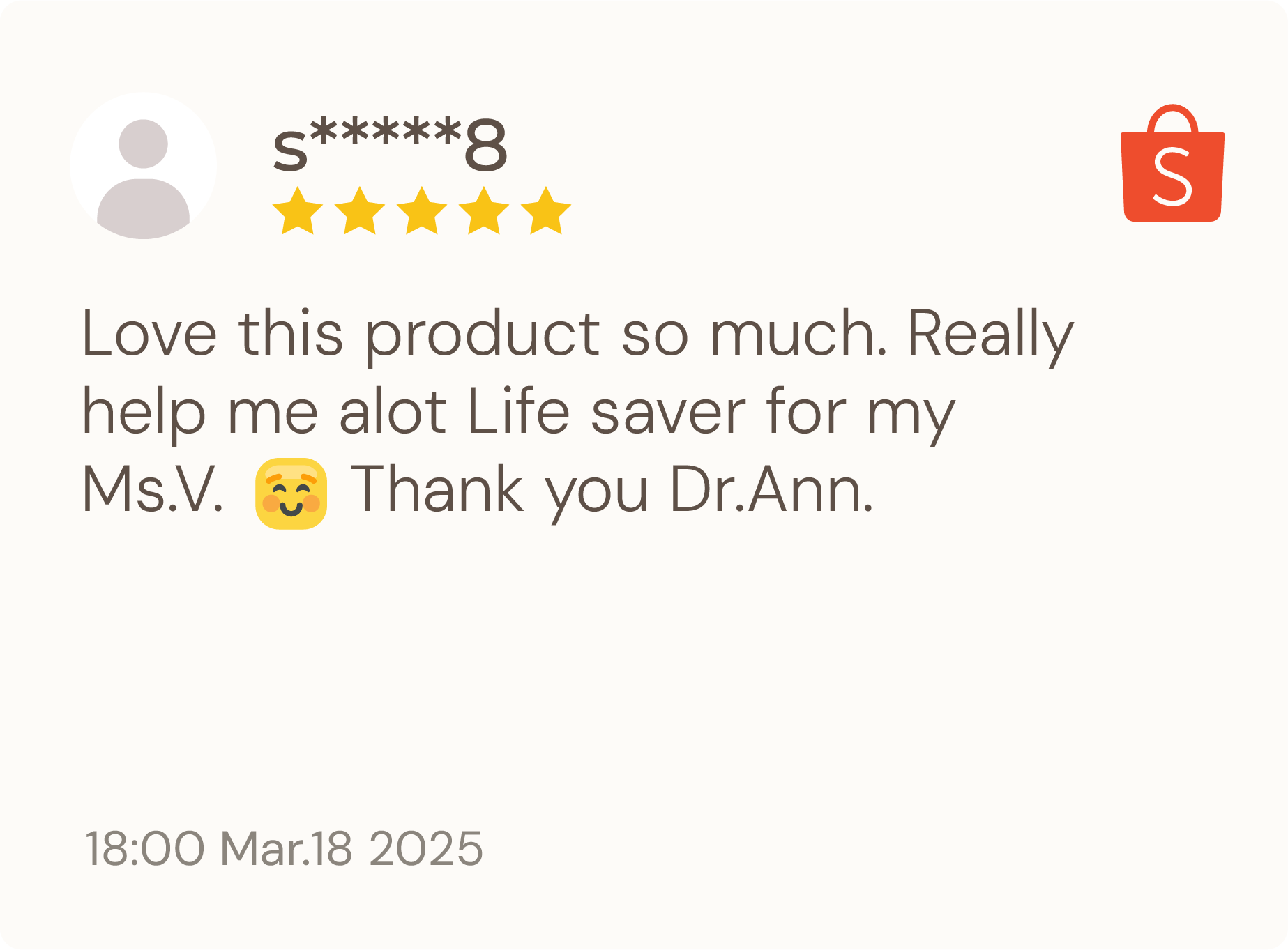

Real Voice of
Our Community
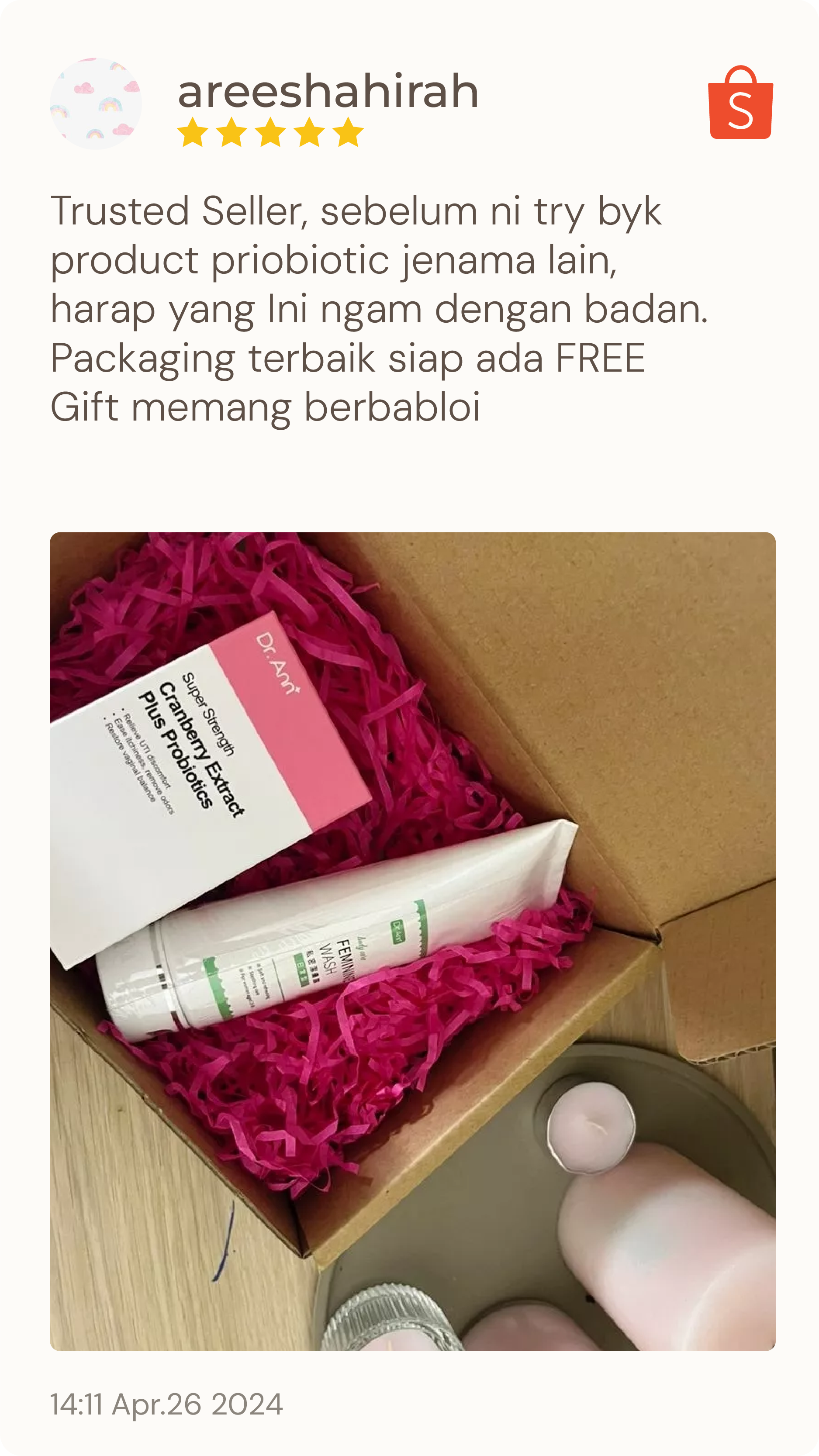




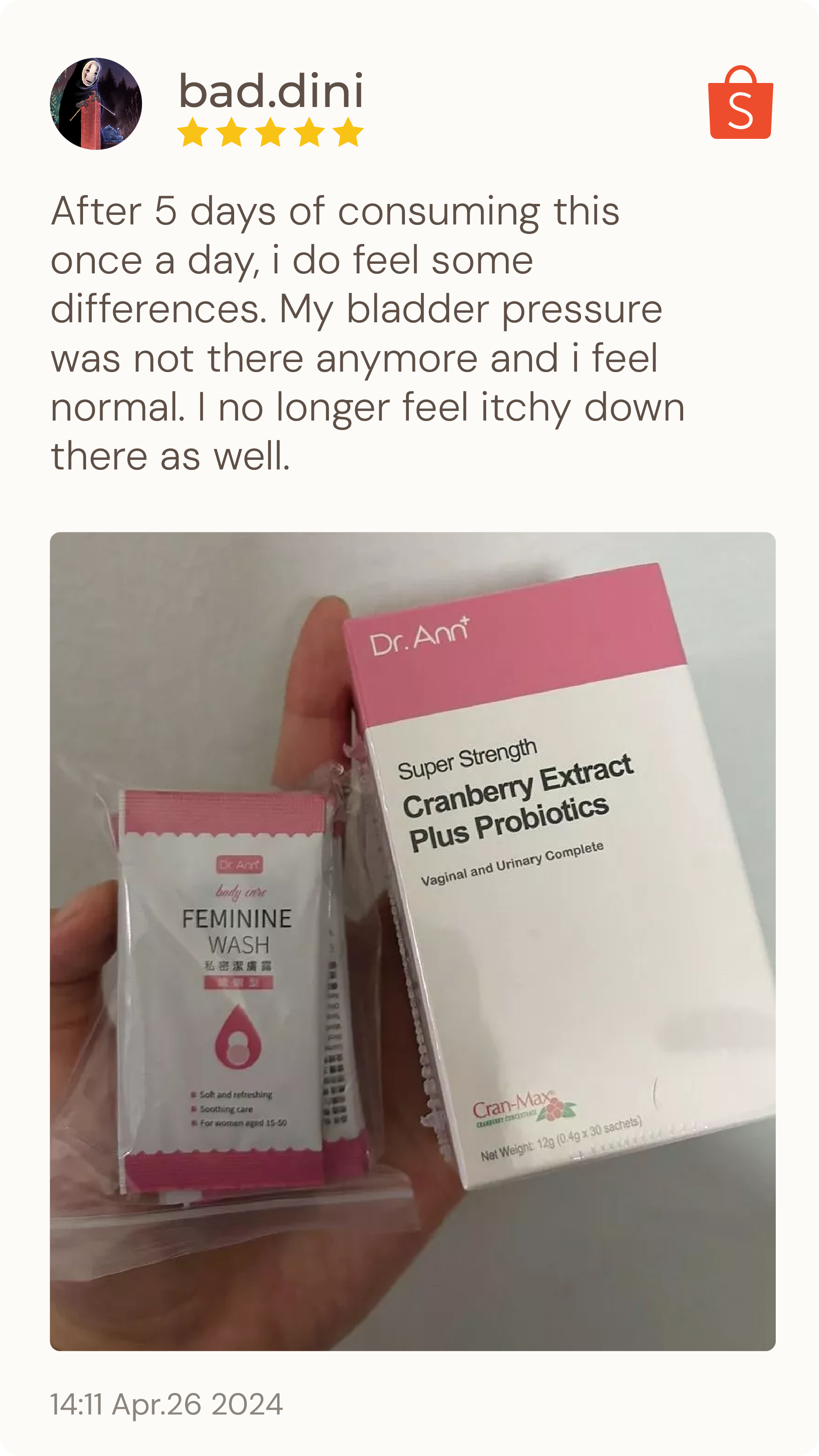



Active Body,
Mindful Life: Our Gold Standard


Join our community, thrive with confidence!



Discover
the gold
standard loved by Malaysians.



Join our community of 1,895+ balanced, energized women!

Active Body, Mindful Life:
Our Gold Standard






Community Favorites
Urinary tract infections (UTIs) are common in Malaysia, especially among women. Many people are turning to natural remedies like cranberry juice for UTI prevention. But does it really work? Let's explore the facts about cranberry juice and UTIs.
Understanding UTIs
A UTI happens when bacteria enter and grow in your urinary system. Common symptoms include:
- Frequent, urgent need to pee
- Burning sensation when peeing
- Cloudy or smelly urine
- Lower stomach pain
- Feeling tired or shaky
Women are more likely to get UTIs because their urethra (the tube that carries pee out of the body) is shorter and closer to the anus, making it easier for bacteria to enter.
How Cranberry Juice Might Help
Cranberries contain special compounds called proanthocyanidins (PACs). These compounds might help prevent bacteria from sticking to the walls of your urinary tract. If bacteria can't stick, they're more likely to be flushed out when you pee.
Some potential benefits of cranberry juice for UTI prevention include:
- Fewer recurring infections
- A natural alternative to antibiotics
- Support for overall bladder health
However, it's important to note that while some studies show promise, others find no significant benefit. More research is needed to be sure about how well cranberry juice works for preventing UTIs.
For more read: The Ultimate Guide to Cranberry Benefits for Malaysians: From UTIs to Heart Health
Using Cranberry Juice for UTI Prevention
If you want to try cranberry juice for UTI prevention, here are some tips:
- Drink 240-300 ml of cranberry juice cocktail daily
- Choose pure, unsweetened cranberry juice if possible (50-100 ml daily)
- Consider cranberry supplements if you don't like the taste of the juice
- Be consistent – drink it every day for the best chance of seeing benefits
When choosing cranberry juice:
- Look for pure juice or low-sugar options
- Check the label for higher concentrations of cranberry
- Consider supplements that specify PAC content
Cranberry Probiotics: A Powerful Combination
Combining cranberry with probiotics might offer even better protection against UTIs. Cranberry probiotics are supplements that contain both cranberry extract and beneficial bacteria. These good bacteria can help maintain a healthy balance in your urinary tract, making it harder for harmful bacteria to grow.
Benefits of cranberry probiotics may include:
- Enhanced UTI prevention
- Improved gut health
- Stronger immune system support
You can find cranberry probiotic supplements in many pharmacies and health food stores in Malaysia. Always check with your doctor before starting any new supplement routine.
Other Natural Ways to Prevent UTIs
While cranberry juice and cranberry probiotics can be helpful, they're not the only ways to prevent UTIs. Here are some other tips:
1. Stay hydrated with local drinks:
- Coconut water
- Barley water
- Roselle (Hibiscus) tea
- Plenty of plain water
2. Practice good hygiene:
- Wipe from front to back after using the toilet
- Pee after sex
- Wear breathable, cotton underwear
3. Try traditional Malaysian remedies:
- Corn silk tea
- Pegaga (Centella asiatica)
- Misai Kucing (Java tea)
Remember, these natural remedies should complement, not replace, proper medical care.
When to See a Doctor
While cranberry juice for UTI prevention can be helpful, it's not a cure for active infections. See a doctor if you have:
- Symptoms that don't improve after 2-3 days
- Fever or chills
- Lower back pain
- Blood in your urine
- Nausea or vomiting
Only a doctor can properly diagnose and treat a UTI. They may prescribe antibiotics if needed.
Conclusion
Cranberry juice and cranberry probiotics might help prevent UTIs, but they're not guaranteed to work for everyone. They're best used as part of a broader approach to urinary health that includes good hygiene, staying hydrated, and seeking medical help when needed.
If you decide to try cranberry juice or cranberry probiotics for UTI prevention:
- Choose pure, unsweetened products when possible
- Be consistent with your intake
- Pay attention to how your body responds
- Don't rely on cranberry products alone – maintain overall good health practices
- Seek medical advice if you have concerns or recurring UTIs
By combining traditional wisdom, modern health knowledge, and awareness of your own body, you can make informed decisions about using cranberry products for UTI prevention. Remember, your health is unique – what works for others may not work for you. Always consult with healthcare professionals for personalized advice on preventing and managing UTIs.
Dr.Ann Cranberry Extract Plus Probiotics Capsules
- High-Potency Cranberry Probiotics:
- Exclusive Sphere-Coat Technology
- Plant Capsules
- Pamper Girls Starting from Feminine Parts
- Double-Patented Experts Ensure Your Comfort All Day Long
- Cran-Max 500mg (2 capsules) patented cranberry extract+
- SecretCare 5 billion (2 capsules) patented Intimate probiotics
References:
Cranberries, small red berries native to North America, have gained popularity in Malaysia in recent years. Despite not being grown locally due to the tropical climate, Malaysians can find cranberries in various forms such as dried berries, juices, and supplements in supermarkets and health food stores. This guide will explore the benefits of cranberries and how Malaysians can incorporate them into their diets.
What are Cranberries?
Cranberries (Vaccinium macrocarpon) are bright red berries known for their tart flavor and numerous health benefits. While they can't be cultivated in Malaysia's tropical climate, imported cranberries have found their way into Malaysian households, health stores, and cafes.
How Malaysians Use Cranberries
In Malaysia, cranberries are gaining popularity for their versatility in the kitchen and potential health benefits. Health-conscious Malaysians are incorporating dried cranberries into their breakfast cereals, salads, and even traditional kuih for a nutritious twist. Cranberry juice has become a common sight in Malaysian homes and offices, particularly known for its benefits in urinary tract health. Moreover, the rising awareness of preventive healthcare has led to an increased interest in cranberry supplements among Malaysians, especially in urban areas like Kuala Lumpur, Penang, and Johor Bahru.
Nutritional Profile of Cranberries
Cranberries are packed with nutrients that contribute to their health benefits:
Antioxidants:
Cranberries are rich in flavonoids and polyphenols, including quercetin and myricetin. These compounds protect our cells from damage caused by free radicals.
Vitamins:
- Vitamin C: One cup of raw cranberries provides about 25% of the daily recommended intake. It's important for immune function and skin health.
- Vitamin E: Supports heart health.
- Vitamin K: Important for blood clotting and bone health.
Minerals:
- Manganese: One cup offers about 16% of the daily requirement. It's vital for bone health and metabolism.
- Copper and Potassium: Present in smaller amounts.
Fiber:
One cup of raw cranberries contains about 4 grams of fiber, which supports digestive health.
Low Calorie:
One cup of raw cranberries contains only about 46 calories.
Proanthocyanidins (PACs):
Cranberries contain a unique type of PACs that can prevent bacteria from sticking to the bladder wall.
It's important to note that while fresh cranberries offer the most concentrated nutritional benefits, dried cranberries and juices are more commonly available in Malaysia. However, these forms often contain added sugars, so it's best to look for low-sugar or unsweetened options.
Health Benefits of Cranberries
Cranberries offer several health benefits that make them a valuable addition to your diet:
1. Urinary Tract Health:
The PACs in cranberries help prevent harmful bacteria, especially E. coli, from sticking to the walls of the urinary tract. This can reduce the risk of urinary tract infections (UTIs).
2. Heart Health:
Regular consumption of cranberries may help improve cholesterol levels and lower blood pressure, potentially reducing the risk of cardiovascular diseases.
3. Anti-inflammatory Properties:
The antioxidants in cranberries, particularly quercetin, can help reduce inflammation in the body. This may offer protection against chronic conditions like heart disease and diabetes.
4. Oral Health:
Cranberries can inhibit the growth of bacteria responsible for tooth decay and gum disease, supporting overall oral hygiene.
5. Potential Anti-cancer Properties:
While more research is needed, some studies suggest that cranberries might help inhibit the growth and spread of certain cancer cells, particularly in breast, colon, and prostate cancers.
6. Digestive Health:
The fiber in cranberries supports regular bowel movements and promotes the growth of beneficial gut bacteria.
7. Blood Sugar Management:
Cranberries have a low glycemic index and may improve insulin sensitivity, potentially aiding in blood sugar management for those with or at risk of diabetes.
Cranberry Juice for UTI Prevention
Cranberry juice is particularly popular for its potential to prevent UTIs. For optimal UTI prevention, it's recommended to consume about 240-300 ml of cranberry juice daily. However, it's crucial to choose the right type of cranberry juice. Many commercial cranberry juices available in Malaysian supermarkets are actually "cranberry juice cocktails" that contain added sugars and other fruit juices. For maximum benefit, look for pure, unsweetened cranberry juice or low-sugar options.
It's important to note that while cranberry juice can be effective in preventing UTIs, it is not a treatment for existing infections. If you suspect you have a UTI, it's essential to consult a healthcare professional for proper diagnosis and treatment. For those who find the taste of pure cranberry juice too tart, cranberry supplements offer a concentrated form of cranberry's beneficial compounds without the added sugars often found in juices.
For More Read: The Dos and Don'ts of Using Cranberry Juice for UTI Prevention
Cranberry Probiotics: A Powerful Combination
In recent years, the Malaysian health food market has seen a surge in products combining cranberries with probiotics. This innovative combination harnesses the unique properties of cranberries and the gut-friendly attributes of probiotics, creating a synergistic effect that supports both urinary tract and digestive health.
Cranberry probiotics typically consist of cranberry extract or powder mixed with beneficial bacteria strains, most commonly Lactobacillus and Bifidobacterium species. The cranberry component continues to offer its anti-adhesion properties, helping to prevent harmful bacteria from clinging to the urinary tract walls. Simultaneously, the probiotic bacteria help maintain a healthy balance of microorganisms in the gut, which may indirectly support urinary health by promoting overall immune function.
When selecting a cranberry probiotic product, it's important to look for those with a sufficient amount of both cranberry extract and probiotic strains. High-quality products will specify the concentration of proanthocyanidins (PACs) from cranberries and the number of colony-forming units (CFUs) of probiotics.
Cranberry Supplements: Concentrated Benefits
As awareness of cranberry benefits grows in Malaysia, many health-conscious individuals are turning to cranberry supplements as a convenient and concentrated way to incorporate these benefits into their daily routines. These supplements come in various forms, including capsules, tablets, and powders, designed to provide a concentrated dose of the active compounds found in cranberries.
One of the primary advantages of cranberry supplements is their consistency in dosage. Unlike fresh cranberries or juice, where the concentration of beneficial compounds can vary, supplements are formulated to provide a standardized amount of active ingredients. This standardization allows for more precise control over intake, which can be particularly important for those using cranberries for specific health purposes, such as UTI prevention.
When choosing a cranberry supplement in Malaysia, it's crucial to look for products that clearly state the amount of PACs they contain. It's also worth noting that some supplements combine cranberry extract with other beneficial ingredients, such as vitamin C or D-mannose, to enhance their overall health impact.
Spotlight on Cranmax
In the world of cranberry supplements, Cranmax has emerged as a notable product gaining attention in the Malaysian health market. Cranmax is a patented, highly concentrated cranberry powder extract that's standardized to contain a specific amount of proanthocyanidins (PACs). What sets Cranmax apart is its unique manufacturing process, which concentrates the whole cranberry fruit, including the seeds and skin, to retain a fuller spectrum of cranberry's natural compounds.
The key advantage of Cranmax lies in its potency. Due to its concentrated nature, a smaller dose of Cranmax can provide an equivalent amount of active compounds found in a much larger volume of cranberry juice. This concentration makes it a convenient option for those seeking the benefits of cranberries without consuming large quantities of juice or multiple capsules of standard cranberry supplements.
Incorporating Cranberries into Your Diet
There are several delicious and creative ways to include cranberries in meals and snacks. Fresh cranberries, while not common in Malaysia, can be used in smoothies, cooked into sauces, or baked into muffins and cakes when available. Dried cranberries, which are more accessible, can be added to morning oatmeal, yogurt, salads, or mixed into trail mixes for a healthy snack.
For a local twist, consider adding dried cranberries to traditional Malaysian dishes like nasi lemak or incorporating them into kuih recipes. Cranberry juice can be enjoyed on its own, diluted with water, or mixed with other juices for a refreshing drink. In cooking, cranberry sauce can be used as a glaze for grilled chicken or fish, or as a unique dipping sauce for spring rolls.
For those who enjoy baking, dried cranberries can replace raisins in many recipes, adding a tart flavor to cookies, scones, and bread. They pair particularly well with white chocolate and nuts, making for delicious homemade energy bars or cookies.
Precautions and Considerations
While cranberries offer numerous health benefits, it's important to be aware of certain precautions. Individuals taking blood-thinning medications should consult their healthcare provider before significantly increasing cranberry intake due to its vitamin K content. Those prone to kidney stones should be cautious as cranberries are high in oxalates.
Diabetics and those watching their sugar intake should be careful with cranberry products, especially juices and dried cranberries, which often contain added sugars. Some people may experience digestive discomfort when consuming large amounts of cranberries, particularly in juice form.
While rare, cranberry allergies do exist. If you experience symptoms such as itching, hives, or difficulty breathing after consuming cranberries, discontinue use immediately and consult a healthcare professional. Pregnant or breastfeeding women should consult with their healthcare provider before significantly increasing cranberry intake or starting any new supplements.
When using cranberry supplements, be aware that they are not regulated as strictly as medications. Choose supplements from reputable manufacturers and look for products that have been third-party tested for quality assurance.
Conclusion
Cranberries, with their unique tart flavor and impressive array of health benefits, have rightfully earned their place in the Malaysian health and wellness landscape. Whether consumed fresh, dried, as juice, or in supplement form, cranberries offer Malaysians a versatile and beneficial addition to their diets.
As with any aspect of health, balance is key. Incorporating cranberries into your diet can be part of a holistic approach to wellness, complementing other healthy lifestyle choices such as a balanced diet, regular exercise, and adequate hydration. Remember, while cranberries offer numerous health benefits, they are not a magic solution. Always consult with healthcare professionals for personalized advice, especially if you have existing health conditions or are taking medications.
Dr.Ann Cranberry Extract Plus Probiotics Capsules
- High-Potency Cranberry Probiotics:
- Exclusive Sphere-Coat Technology
- Plant Capsules
- Pamper Girls Starting from Feminine Parts
- Double-Patented Experts Ensure Your Comfort All Day Long
- Cran-Max 500mg (2 capsules) patented cranberry extract+
- SecretCare 5 billion (2 capsules) patented Intimate probiotics
When you hear "folic acid," you might think it's just for pregnant women. But did you know that folic acid is crucial for men's health too? This guide will explore why folic acid is important for Malaysian men and how it can boost your overall well-being.
What is Folic Acid?
Folic acid is a B-vitamin that's essential for your body. It's the man-made form of folate, which occurs naturally in foods. Both forms are important, but your body processes them differently.
for more read: Folate vs Folic Acid: Understanding Vitamin B9 and Its Importance
Why is Folic Acid Important for Men?
1. Heart Health
- Lowers homocysteine levels, reducing heart disease risk
- Especially important for Malaysian men due to dietary habits
2. Brain Function
- May help manage depression
- Supports overall cognitive health
3. Male Fertility
- Can improve sperm quality and count
- Important for couples trying to conceive
4. Cell Growth and DNA
- Crucial for cell division and DNA repair
- Supports overall body function and healing
for more read: Folic Acid 101: Functions, Benefits, Side Effects, and Dietary Dos and Don'ts
How Much Folic Acid Do Men Need?
The recommended daily intake for adult men in Malaysia is 400 micrograms (mcg) of dietary folate equivalents (DFE). However, your needs may vary based on:
- Age
- Health conditions
- Lifestyle factors
Natural Sources of Folate
Include these folate-rich foods in your diet:
1. Leafy Greens
- Spinach (bayam)
- Kale
- Broccoli
2. Fruits
- Oranges
- Bananas (pisang)
- Avocados
3. Legumes and Nuts
- Lentils (dhal)
- Chickpeas (kacang kuda)
- Peanuts (kacang tanah)
4. Fortified Foods
- Some cereals and bread in Malaysia are fortified with folic acid
Folic Acid Supplements
While getting folic acid from food is best, some men may benefit from supplements. Consider supplements if you:
- Have dietary restrictions
- Have certain health conditions
- Are over 50 years old
- Smoke or drink alcohol regularly
Always consult your doctor before starting any supplement regimen.
Folic Acid and Hair Health
There's growing interest in folic acid's potential benefits for hair health. While research is ongoing, some studies suggest that folic acid may:
- Support hair growth
- Help maintain natural hair color
- Strengthen hair strands
However, more research is needed to confirm these benefits.
How to Include Folic Acid in Your Daily Routine
1. Balanced Meals
- Add spinach to your nasi lemak
- Include dhal in your banana leaf rice meals
- Choose folate-rich snacks like peanuts or oranges
2. Smart Cooking
- Lightly steam or stir-fry vegetables to retain nutrients
- Add leafy greens towards the end of cooking
3. Stay Hydrated
- Drink plenty of water, especially in Malaysia's hot climate
- Try infusing water with folate-rich fruits
Special Considerations for Malaysian Men
1. Age-Related Needs
- Young adults: Focus on healthy eating habits
- Middle-aged men: Pay attention to heart health
- Older men: Be aware of potential absorption issues
2. Health Conditions
- Cardiovascular disease: May benefit from increased intake
- Diabetes: Might need adjusted folic acid levels
- Gastrointestinal disorders: Could affect absorption
3. Genetic Factors
- Some people have gene variations that affect folic acid processing
- Discuss genetic testing with your doctor if you have concerns
4. Occupational Factors
- Shift workers: Plan meals carefully
- Outdoor workers: Consider increased intake due to heat exposure
- High-stress jobs: Folic acid may help combat stress-related depletion
FAQs About Folic Acid for Men
Q1: Isn't folic acid only for pregnant women?
A1: While crucial for pregnancy, folic acid is equally important for men's health, especially for heart and brain function.
for more read: 3 Crucial Benefits of Folic Acid for Pregnancy You Can't Ignore
Q2: Can men take too much folic acid?
A2: Yes, excessive intake (over 1,000 mcg daily) can mask vitamin B12 deficiency. Stick to recommended doses unless advised otherwise by your doctor.
Q3: Can folic acid help with hair loss?
A3: Some studies suggest a link between folate deficiency and hair loss, but folic acid alone isn't a cure for male pattern baldness.
Q4: How long does it take to see benefits from increased folic acid intake?
A4: It varies, but some benefits, like improved homocysteine levels, may be noticeable within a few weeks to months of consistent intake.
Q5: Do Malaysian men typically get enough folic acid from their diet?
A5: Many Malaysian men may not get sufficient folate from diet alone, especially if they don't regularly eat leafy greens, legumes, or fortified foods.
Conclusion
Folic acid is an essential nutrient for Malaysian men, supporting heart health, brain function, and overall well-being. By incorporating folate-rich foods into your diet and considering supplements when necessary, you can take a proactive step towards better health.
Remember, good health is a journey. By paying attention to crucial nutrients like folic acid, Malaysian men can pave the way for a healthier future for themselves and their families.
Super Folic Acid + Iron Vegan-Friendly 400mg 60's
- Country of Origin: Taiwan
- Vegan: Yes
- Recommended Age: 12 years and above
- Best Time to Take: Can be taken before or after meals
- How to Use: Swallow capsules with water or open and mix with food
- Dosage: 1 capsule daily, do not exceed 1 capsule per day
References:
Hey there! Are you curious about collagen and why everyone's talking about it? Well, you're in the right place! This guide will tell you everything you need to know about collagen, especially when it comes to keeping your skin looking young and healthy. We'll talk about collagen supplements, how collagen helps your skin, and much more. So, let's dive in!
What is Collagen?
Collagen is like the superhero of proteins in our body. It's everywhere - in your skin, bones, muscles, and even your blood vessels. Think of collagen as the glue that holds your body together. Cool, right?The amazing thing about collagen is its special structure. Scientists call it a triple-helix structure. Imagine three long strings twisted together like a rope. That's what collagen looks like up close. This unique collagen structure is what makes it so strong and flexible.
There are different types of collagen in your body. The main ones are:
- Type I: This is the most common. It's in your skin, bones, and organs.
- Type II: You'll find this one in your cartilage.
- Type III: This type supports your muscles, organs, and blood vessels.
- Type IV: This forms a special layer under your skin cells.
For your skin, Types I and III are the real stars. They help keep your skin firm, smooth, and young-looking.
Why is Collagen Important?
Now that you know what collagen is, let's talk about why it's so important. Collagen does a lot for your body:
1. It gives structure to your skin, keeping it firm and elastic.
2. It helps your joints move smoothly.
3. It keeps your bones strong.
4. It supports your muscles.
5. It helps your blood vessels stay healthy.
As you can see, collagen is pretty awesome! But here's the thing - as you get older, your body makes less collagen. This starts happening in your mid-20s. By the time you're in your 40s or 50s, you might be making 30% less collagen than when you were younger. Yikes!
This decrease in collagen is why many people start to see:
1. Wrinkles and fine lines on their skin
2. Sagging skin
3. Stiff joints
4. Weaker bones
5. Thinning hair
But don't worry! There are ways to boost your collagen levels. That's where collagen supplements come in.
Collagen Benefits for Skin
Let's focus on how collagen helps your skin. After all, who doesn't want great-looking skin, right? Here are the main collagen benefits for your skin:
1. Improves Skin Elasticity
Collagen is like a trampoline for your skin. It helps your skin bounce back when you stretch or pinch it. This is what we call skin elasticity. More collagen means more elasticity, which means your skin looks firmer and younger.
2. Boosts Skin Hydration
Collagen is great at holding onto water. When your skin has enough collagen, it can keep more water in. This makes your skin look plump and dewy. Hydrated skin also means fewer fine lines and wrinkles.
3. Reduces Fine Lines and Wrinkles
Speaking of wrinkles, collagen is your skin's best friend in fighting them. It helps fill in those little lines and creases, making your skin look smoother.
4. Helps with Skin Repair
Got a cut or a scrape? Collagen helps your skin heal faster. It's a key player in making new skin cells and repairing damaged ones.
5. Gives Your Skin a Healthy Glow
When your skin has enough collagen, it looks healthier overall. Many people say their skin gets a natural glow when they boost their collagen levels.
6. May Help with Acne Scars
Some studies suggest that collagen can help reduce the appearance of acne scars. It does this by supporting the growth of new, healthy skin cells.
7. Strengthens Your Skin Barrier
Your skin has a protective barrier that keeps good stuff in and bad stuff out. Collagen helps make this barrier stronger, which can lead to healthier skin overall.
Understanding Collagen Supplements
Now that you know how great collagen is for your skin, let's talk about collagen supplements. These are products you can take to boost your body's collagen levels. They've become super popular in recent years, especially in Malaysia where people are always looking for ways to keep their skin looking young and fresh.
What are Collagen Supplements?
Collagen supplements are products that contain collagen or ingredients that help your body make more collagen. They come in different forms, which we'll talk about later. The collagen in these supplements usually comes from animals like cows, chickens, or fish.
Most collagen supplements contain something called "hydrolyzed collagen" or "collagen peptides." This is collagen that's been broken down into smaller pieces. Why? Because it's easier for your body to absorb and use.
Read More Here: Top 10 Benefits of Hydrolyzed Collagen for Malaysian Skin Types
Types of Collagen Supplements
There are several types of collagen supplements available. Here are the most common ones:
1. Collagen Powders
These are probably the most popular type of collagen supplement. They're versatile - you can mix them into drinks, smoothies, or even your food. Many people like to add them to their morning coffee or tea.
Pros of collagen powders:
- Easy to use
- Can be mixed into many different foods and drinks
- Often more cost-effective than other forms
Cons of collagen powders:
- Some people don't like the taste
- You need to mix them yourself, which can be a bit messy
2. Collagen Capsules or Tablets
These are pills that contain collagen. They're great if you want a no-fuss way to take your collagen supplement.
Pros of collagen capsules:
- Convenient
- No taste
- Easy to take with you when you travel
Cons of collagen capsules:
- You might need to take several pills to get enough collagen
- Can be more expensive than powders
3. Liquid Collagen
This is collagen that comes in a ready-to-drink form. It's often flavored to make it taste better.
Pros of liquid collagen:
- Ready to drink, no mixing required
- Often comes in tasty flavors
Cons of liquid collagen:
- Can be more expensive
- May contain added sugars or artificial flavors
4. Collagen Gummies
These are chewy, candy-like supplements that contain collagen. They're popular because they're tasty and fun to eat.
Pros of collagen gummies:
- Taste good
- Easy to remember to take (because they're like a treat!)
Cons of collagen gummies:
- Often contain less collagen per serving than other forms
- May contain added sugars
5. Collagen Bars
These are snack bars that have collagen added to them. They're a good option if you want to combine your collagen supplement with a quick snack.
Pros of collagen bars:
- Convenient
- Can be a good snack option
Cons of collagen bars:
- May contain added sugars or artificial ingredients
- Often more expensive than other forms of collagen supplements
How Do Collagen Supplements Work?
When you take a collagen supplement, here's what happens:
- You consume the supplement (whether it's a powder, pill, or gummy).
- The collagen peptides in the supplement are absorbed into your bloodstream through your small intestine.
- These peptides then travel throughout your body.
- Your body recognizes these peptides and thinks, "Oh! We need to make more collagen!"
- This triggers your body to ramp up its own collagen production.
It's important to note that when you take a collagen supplement, your body doesn't directly use that collagen. Instead, it breaks it down and uses the amino acids (the building blocks of protein) to make its own collagen.
This is why consistency is key with collagen supplements. You need to take them regularly to see results. Most studies show that it takes at least 8 weeks of daily use to start seeing benefits.
Choosing the Right Collagen Supplement
With so many collagen supplements out there, how do you choose the right one? Here are some things to consider:
1. Source of Collagen
Collagen supplements can come from different sources:
- Bovine (cow) collagen: This is the most common. It's rich in Types I and III collagen, which are great for skin.
- Marine (fish) collagen: This is becoming more popular. It's also rich in Type I collagen and some people find it easier to absorb.
- Chicken collagen: This is often used in supplements for joint health as it's rich in Type II collagen.
- Porcine (pig) collagen: This is less common but similar to bovine collagen.
Choose a source that aligns with your dietary preferences and restrictions.
2. Type of Collagen
For skin health, look for supplements that contain Types I and III collagen. These are the types most beneficial for skin.
3. Form of Collagen
Choose a form that fits your lifestyle. If you don't mind mixing a powder into your drinks, a powder might be best. If you prefer something quick and easy, capsules or gummies might be better.
4. Additional Ingredients
Some collagen supplements include other ingredients that can boost collagen production or provide additional benefits. These might include:
- Vitamin C: This vitamin is crucial for collagen production.
- Hyaluronic Acid: This helps with skin hydration.
- Biotin: Good for hair and nail health.
- Zinc: Important for wound healing and skin health.
- Vitamin E: An antioxidant that can help protect your skin.
5. Quality and Purity
Look for supplements that have been third-party tested for quality and purity. Certifications from reputable organizations can be a good sign.
6. Brand Reputation
Choose supplements from brands with a good reputation for producing quality products.
7. Price
While price shouldn't be the only factor, compare prices to make sure you're getting good value for your money.
Remember, what works for one person might not work for another. It might take some trial and error to find the collagen supplement that works best for you.
Lifestyle Factors that Affect Collagen Levels
While diet plays a crucial role, several lifestyle factors can impact your body's collagen levels:
1. Sun Exposure
Too much sun can damage collagen in your skin. Always use sunscreen and protective clothing when you're outdoors, especially in Malaysia's sunny climate.
2. Smoking
Tobacco use can decrease collagen production and damage existing collagen. If you smoke, quitting can help improve your skin health and overall collagen levels.
3. Sleep
During sleep, your body repairs and regenerates collagen. Try to get 7-9 hours of quality sleep each night.
4. Stress
Chronic stress can lead to increased cortisol levels, which can break down collagen. Practice stress-reduction techniques like meditation or yoga.
5. Exercise
Regular physical activity can boost collagen production. Aim for a mix of cardio and strength training exercises.
6. Hydration
Drinking enough water is crucial for maintaining skin hydration and supporting collagen function. In Malaysia's hot climate, staying hydrated is especially important.
7. Sugar Intake
High sugar consumption can lead to glycation, a process that damages collagen. Try to limit your intake of sugary foods and drinks.
8. Alcohol Consumption
Excessive alcohol can dehydrate your skin and reduce collagen production. If you drink, do so in moderation.
By making mindful choices in your diet and lifestyle, you can support your body's natural collagen production and maintain healthy skin, joints, and overall well-being.
Safety and Considerations
While collagen supplements are generally considered safe for most people, it's important to be aware of potential side effects and know who should be cautious about using these supplements.
Most people tolerate collagen supplements well, but some may experience mild side effects:
1. Digestive Discomfort
Some people might experience mild gastrointestinal symptoms like bloating, fullness, or mild diarrhea when taking collagen supplements. These symptoms often improve as your body adjusts to the supplement.
2. Allergic Reactions
If you're allergic to the source of the collagen (like fish or eggs), you might have an allergic reaction. Always check the source of your collagen supplement.
3. Unpleasant Taste
Some people find that collagen supplements, especially powders, have an unpleasant taste. This can often be masked by mixing the supplement into flavored drinks or foods.
4. Hypercalcemia
In rare cases, excessive consumption of collagen derived from marine sources may lead to hypercalcemia (too much calcium in the blood). This is why it's important to follow the recommended dosage.
5. Skin Reactions
Though rare, some individuals might experience skin rashes or other allergic reactions.
6. Interactions with Medications
Collagen supplements may interact with certain medications, particularly those affecting blood clotting. Always consult with your doctor if you're on any medications.
Who Should Avoid Collagen Supplements
While collagen supplements are safe for most people, certain groups should exercise caution or avoid them altogether:
1. Pregnant or Breastfeeding Women
Due to limited research on the effects of collagen supplements during pregnancy and lactation, it's advisable to avoid them during these periods unless recommended by a doctor.
2. People with Allergies
Individuals with allergies to common collagen sources (fish, shellfish, eggs, or chicken) should avoid supplements derived from these sources.
3. Those with Kidney Issues
People with kidney problems should consult their doctor before taking collagen supplements, as excessive protein intake may strain the kidneys.
4. Individuals with Certain Medical Conditions
Those with conditions that affect protein metabolism or amino acid processing should seek medical advice before using collagen supplements.
5. People on Specific Medications
If you're taking medications for blood clotting, diabetes, or other chronic conditions, consult your doctor before starting collagen supplements.
6. Vegans and Vegetarians
Most collagen supplements are derived from animal sources. While plant-based alternatives exist, their effectiveness may vary.
Wrapping It Up
So, we've learned a lot about collagen and how it helps our skin stay young and healthy. Let's recap the main points:
- Collagen is a super important protein in our body. It's like glue that holds everything together, especially in our skin.
- As we get older, our body makes less collagen. This is why we start to see wrinkles and saggy skin.
- Collagen supplements can help boost our body's collagen levels. They come in different forms like powders, pills, and even gummies.
- These supplements can make our skin more elastic, reduce wrinkles, and help our skin stay hydrated.
- When choosing a collagen supplement, look at things like the source of collagen, the type, and if it has any extra helpful ingredients.
- Remember, collagen supplements aren't just about taking pills. Our lifestyle matters too. Things like protecting our skin from the sun, getting enough sleep, and eating healthy foods all help our body make collagen.
- While collagen supplements are generally safe, they're not for everyone. If you're pregnant, have allergies, or are taking certain medicines, it's best to talk to a doctor first.
In the end, collagen can be a great way to keep our skin looking young and healthy. But it's not a magic solution. It works best when we take care of our overall health too. Whether you decide to try collagen supplements or not, remember that healthy habits are always the best foundation for great skin!
Pure Collagen nourishing essence
- 7-Day Trial: Nutritional Boost
- 28-Day Commitment: Beauty and Radiance
- Long-Term Use: Youthful and Beautiful
- Pure Collagen Concentrate
- Rejuvenate and Lock in Youth
- 100% Hydrolyzed Collagen
- No Additives
References:
1. Marlyn Wu; Kelly Cronin; Jonathan S. Crane. .(2023). Biochemistry, Collagen Synthesis
2. Elena Makareeva, Sergey Leikin .(2014). Collagen Structure, Folding and Function
Enzymes are tiny protein molecules that play a huge role in our bodies. They help speed up chemical reactions that keep us alive and healthy. From digesting our favorite nasi lemak to giving us energy for daily activities, enzymes are always hard at work.
But did you know that different factors can affect how well enzymes work? Let's explore the fascinating world of enzymes and learn about the key factors affecting enzyme activity.
What Are Enzymes?
Enzymes are special proteins that act like tiny machines in our cells. They have a special area called the active site, which fits perfectly with specific molecules called substrates. When an enzyme and substrate come together, they form a temporary partnership called the enzyme-substrate complex. This allows chemical reactions to happen much faster than they would on their own.
Some enzymes need helpers called cofactors (like metal ions) or coenzymes to work properly. Together, they form a powerful team that can carry out all sorts of important jobs in our body.
For More Read: Enzyme Function: Unlocking the Power of Biological Catalysts
Types of Enzymes and What They Do
There are many different types of enzymes in our body, each with its own special job:
1. Digestive enzymes: These break down the food we eat
- Amylase breaks down carbs in our mouth
- Pepsin tackles proteins in our stomach
- Lipase works on fats in our small intestine
For More Read: Enzyme Digestion 101: Your Guide to Better Gut Health
2. Metabolic enzymes: These keep our body's internal factory running smoothly
- ATP synthase produces energy for our cells
- DNA polymerase helps copy our DNA
- Cytochrome c oxidase helps our cells use oxygen
Other important enzymes:
- Antioxidant enzymes protect our cells from damage
- Proteases break down proteins for various body processes
- Isomerases help convert molecules from one form to another
Factors Affecting Enzyme Activity
Now, let's look at the main factors that can affect how well enzymes work:
Temperature
Enzymes are sensitive to temperature changes. They work best at our normal body temperature (around 37°C). When it's too cold, enzymes slow down. When it's too hot, enzymes can lose their shape and stop working properly. This is why we might feel sluggish in very cold or hot weather.
pH
The pH level (how acidic or alkaline something is) can change the shape of enzymes. Each enzyme has its preferred pH level:
- Pepsin in our stomach likes very acidic conditions
- Trypsin in our small intestine prefers slightly alkaline conditions
Our digestive system is a great example of enzymes working at different pH levels:
- Mouth: near-neutral pH
- Stomach: highly acidic
- Small intestine: alkaline
Enzyme Concentration
Just like how more hands make light work, having more enzymes can speed up reactions. Our body sometimes produces more enzymes when needed, like after a big meal.
Substrate Concentration
The amount of substrate (the substance enzymes work on) also affects enzyme activity. It's like a busy food stall – it can serve more customers when there's a queue, but only up to a point. Once all the enzymes are busy, adding more substrate won't speed things up further.
Salt Concentration
The amount of salt around enzymes can affect how well they work. This is especially important in Malaysia's hot climate, where we lose salt through sweating. Keeping the right balance of salts in our body is crucial for enzymes to work properly.
How Enzyme Activity Affects Our Body
Enzymes play a vital role in many important processes in our body:
1. Metabolism and Energy Production
- Breaking down glucose for quick energy
- Producing most of our body's energy through complex reactions
2. Digestion and Nutrient Absorption
- Breaking down carbs, proteins, and fats from our food
- Helping our body absorb essential nutrients
3. Cellular Communication and Regulation
- Helping transmit signals within cells
- Producing and breaking down hormones
- Enabling brain function through neurotransmitters
Real-World Applications of Enzyme Knowledge
Understanding enzymes isn't just about biology – it has many practical uses in our daily lives:
1. Medical Treatments and Diagnostics
- Enzyme replacement therapy for genetic disorders
- Diagnostic tests for conditions like liver disease
- Some cancer treatments that target specific enzymes
2. Food Industry
- Making cheese and fruit juices
- Tenderizing meat
- Creating lactose-free dairy products
3. Biotechnology and Research
- Genetic engineering
- Biofuel production
- Creating custom enzymes for industrial use
4. Household Products
- Laundry detergents that remove tough stains
- Contact lens cleaners
- Eco-friendly drain cleaners
5. Agriculture
- Some pesticides for crop protection
- Improving animal feed
- Treating soil to improve fertility
Conclusion
Enzymes are truly amazing molecules that keep our bodies running smoothly. By understanding the factors affecting enzyme activity, we can appreciate how our bodies adapt to different conditions – whether we're enjoying a spicy curry that changes our stomach pH or exercising on a hot day that raises our body temperature.
From the hospital to the hawker center, enzymes play a crucial role in many aspects of Malaysian life. As we continue to learn more about enzymes, we open doors to new innovations that could improve healthcare, boost our industries, and even help protect our beautiful Malaysian environment.
So the next time you enjoy a steaming plate of nasi lemak or take medicine for a headache, remember the tiny enzyme workers making it all possible. These microscopic marvels, influenced by factors like temperature and pH, are the true unsung heroes of our biological world.
Dr.Ann SlimZyme Probiotics Complex 15's
- Probiotic Enzyme Jelly
- Metabolic Boost · New Fiber Comfort
- Musk Grape Flavor
- Enzyme Probiotic Formula
- Carefully Selected Plant-Based Ingredients
References:
Folate, a crucial B vitamin, plays a vital role in our health. Many Malaysians may not realize its importance or the risks of folate deficiency. As our lifestyles and diets change, understanding this essential nutrient becomes more critical. Folate deficiency can affect people of all ages, from expecting mothers to the elderly. Let's explore the causes, symptoms, and prevention of folate deficiency in Malaysia.
What is Folate?
Folate is a B-vitamin that's essential for our health. It's found naturally in many foods, while folic acid is the synthetic form used in supplements and fortified foods.
Roles of Folate in the Body:
- DNA synthesis: Folate helps create new cells, important for skin, hair, and digestion.
- Red blood cell production: It's crucial for making healthy red blood cells that carry oxygen in our body.
- Fetal development: For pregnant women, folate is vital for the baby's brain and spinal cord development.
Causes of Folate Deficiency
Several factors can lead to folate deficiency in Malaysia:
Dietary factors:
- Not eating enough folate-rich foods
- Overcooking foods, which reduces folate content
Medical conditions:
- Digestive system diseases that affect nutrient absorption
- Hemolytic anemia, which increases the need for folate
Lifestyle factors:
- Excessive alcohol consumption
- Pregnancy, which increases folate needs
Medications:
- Some drugs can interfere with folate absorption
Genetic factors:
- Some people have a genetic variation affecting folate processing
Symptoms of Folate Deficiency
Recognizing these signs can help detect folate deficiency early:
General symptoms:
- Fatigue and weakness
- Shortness of breath (sesak nafas)
- Irritability and mood changes
Oral symptoms:
- Tender, red tongue (lidah merah dan sensitif)
- Mouth sores or ulcers (ulser mulut)
Neurological symptoms:
- Memory loss and difficulty concentrating
- Confusion and problems with judgment
Other symptoms:
- Pale skin (kulit pucat)
- Dizziness (pening)
- Gastrointestinal issues
If you experience these symptoms persistently, consult a healthcare professional. Visit your local klinik kesihatan or hospital for proper diagnosis and treatment.
Complications of Folate Deficiency
If left untreated, folate deficiency can lead to serious health issues:
Anemia:
- Megaloblastic anemia, causing fatigue, shortness of breath, and pale skin
- Reduced oxygen transport in the body
Pregnancy-related complications:
- Neural tube defects in babies (spina bifida, anencephaly)
- Increased risk of premature birth and low birth weight
Long-term health risks:
- Cardiovascular disease
- Certain cancers
- Cognitive decline and dementia
Diagnosis of Folate Deficiency
To diagnose folate deficiency, doctors typically:
- Take a medical history and assess symptoms
- Perform a physical examination
- Order blood tests: Serum folate test, Red blood cell (RBC) folate test, Complete Blood Count (CBC), Homocysteine test, Vitamin B12 test
In rare cases, additional procedures like bone marrow biopsy or genetic testing may be recommended.
Treatment and Management of Folate Deficiency
Folate deficiency can be effectively treated and managed:
Folic acid supplementation:
- Typical dosage: 400-800 micrograms (mcg) daily for most adults
- Higher dosages may be prescribed in severe cases or for pregnant women
- Treatment usually lasts several months
Dietary changes:
- Increase intake of folate-rich foods like bayam (spinach), kangkung (water spinach), kacang panjang (long beans), and fruits
- Proper food preparation to preserve folate content
Lifestyle modifications:
- Limit alcohol consumption
- Quit smoking
- Manage chronic conditions
Monitoring and follow-up:
- Regular blood tests
- Nutritional counseling
- Pregnancy planning
Prevention of Folate Deficiency
Preventing folate deficiency is crucial for maintaining overall health:
Dietary recommendations:
Eat foods naturally high in folate:
- Ulam: Traditional Malay raw vegetable salads
- Sayur-sayuran: Leafy greens like bayam and kangkung
- Kacang-kacangan: Legumes such as kacang panjang and kacang dhal
- Buah-buahan: Fruits like pisang (banana) and betik (papaya)
- Hati ayam: Chicken liver, high in folate
Choose fortified foods with folic acid:
- Roti mil penuh (whole grain bread)
- Bijirin sarapan (breakfast cereals)
- Some brands of beras (rice)
for more read: Top 15 Folic Acid Foods: Boost Your Health with Foods Rich in Folate
Recommended daily intake of folate:
- Adults: 400 mcg per day
- Pregnant women: 600 mcg per day
- Breastfeeding women: 500 mcg per day
Lifestyle modifications:
- Limit alcohol consumption
- Use proper cooking methods to preserve folate
- Avoid overcooking foods
Supplementation for high-risk groups:
- Pregnant women and those planning pregnancy
- People with certain medical conditions
- Vegetarians and vegans
Regular health check-ups:
- Include folate level checks in routine screenings
- Attend regular prenatal check-ups for expectant mothers
Special Considerations
Some groups require special attention regarding folate deficiency:
Pregnant women:
- Higher folate needs (600 mcg daily)
- Crucial for preventing birth defects
- Cultural considerations for dietary restrictions
for more read: 3 Crucial Benefits of Folic Acid for Pregnancy You Can't Ignore
Elderly populations:
- Increased risk due to reduced absorption and medication interactions
- Important for cognitive health
- Tailored interventions needed
Vegetarians and vegans:
- Ensure adequate intake from plant-based sources
- Be aware of potential B12 deficiency masking folate deficiency
- Consider supplementation
Individuals with chronic diseases:
- Diabetes and cardiovascular disease may affect folate status
- Gastrointestinal disorders can impair folate absorption
Diverse ethnic groups:
- Consider different dietary patterns in Malay, Chinese, and Indian cuisines
- Be aware of potential genetic factors affecting folate metabolism
- Provide culturally competent healthcare and education
Conclusion
Folate deficiency is a significant health concern in Malaysia. By understanding its importance, recognizing symptoms, and taking preventive measures, we can improve our overall health. Let's embrace our rich food culture, stay informed about our nutritional needs, and work together as a community to ensure all Malaysians maintain optimal folate levels.
Remember these key points:
- Eat a balanced diet rich in folate-containing foods
- Consider supplementation if you're in a high-risk group
- Be aware of the symptoms and seek medical advice if concerned
- Attend regular health check-ups and include folate level checks
- Spread awareness about the importance of folate in your community
By focusing on folate intake, we can build a healthier future for Malaysia. Let's make folate deficiency a rare concern and optimal health the norm for all Malaysians.
Super Folic Acid + Iron Vegan-Friendly 400mg 60's
- Country of Origin: Taiwan
- Vegan: Yes
- Recommended Age: 12 years and above
- Best Time to Take: Can be taken before or after meals
- How to Use: Swallow capsules with water or open and mix with food
- Dosage: 1 capsule daily, do not exceed 1 capsule per day
References:
1. Kashif M. Khan; Ishwarlal Jialal .(2023). Folic Acid Deficiency
As Malaysians become more health-conscious, it's important to understand the role of essential nutrients in our bodies. One such nutrient is folate, a B vitamin crucial for overall health. While many of us are familiar with folic acid from prenatal supplements and fortified foods, there's a more effective form called methyl folate that's gaining attention.
This guide will explore the benefits of methyl folate, how it differs from folic acid, and why it might be a better choice for many Malaysians. We'll cover everything from its role in the body to its potential health benefits and how you can incorporate it into your diet.
What is Methyl Folate?
Methyl folate, also known as 5-methyltetrahydrofolate (5-MTHF), is the active form of folate that our bodies can use directly. Unlike folic acid, which needs to be converted by our bodies, methyl folate is ready to go to work right away.
Key Points:
- Methyl folate is the active form of folate
- It's more easily used by the body compared to folic acid
- Methyl folate is especially beneficial for people with certain genetic variations
The Importance of Folate in Our Bodies
Folate plays a crucial role in many bodily functions. Here's why it's so important:
1. Cell Growth and Division:
Folate helps in the production of new cells, which is essential for:
- Skin health
- Healing wounds
- Fetal development during pregnancy
2. DNA Synthesis and Repair:
Folate is a key component in:
- Producing DNA
- Repairing damaged DNA
- Potentially reducing the risk of certain cancers
3. Red Blood Cell Production:
Folate helps form healthy red blood cells, preventing a type of anemia.
4. Homocysteine Regulation:
Folate helps convert homocysteine (an amino acid) into methionine, which is important for heart health.
5. Neurological Function:
Folate plays a role in:
- Producing neurotransmitters
- Regulating mood
- Supporting cognitive function
6. Pregnancy and Fetal Development:
Adequate folate intake is crucial for:
- Preventing neural tube defects in developing babies
- Supporting overall fetal growth and development
for more read: Folic Acid 101: Functions, Benefits, Side Effects, and Dietary Dos and Don'ts
Methyl Folate vs. Folic Acid
While both methyl folate and folic acid are forms of vitamin B9, there are some key differences:
Methyl Folate:
- Active form of folate
- Directly usable by the body
- Better absorbed, especially by people with certain genetic variations
- May be more effective in reducing homocysteine levels
Folic Acid:
- Synthetic form of folate
- Needs to be converted by the body before use
- May build up in the bloodstream if not converted efficiently
- Commonly used in fortified foods and many supplements
For many Malaysians, especially those with genetic variations affecting folate metabolism, methyl folate might be a more effective choice.
Health Benefits of Methyl Folate
Methyl folate offers numerous health benefits, many of which are particularly relevant to common health concerns in Malaysia:
Pregnancy and Fetal Health:
- Reduces the risk of neural tube defects
- Supports overall fetal development
- May improve fertility
for more read: 3 Crucial Benefits of Folic Acid for Pregnancy You Can't Ignore
Heart Health:
- Helps regulate homocysteine levels
- May reduce the risk of heart disease, a major concern in Malaysia
- Could help manage blood pressure
Mental Health:
- May help in managing depression
- Could improve response to antidepressant medications
- Potential benefits for cognitive function and memory
Cancer Prevention:
- May play a role in reducing the risk of certain cancers
- Supports DNA repair mechanisms
Metabolic Health:
- Potential benefits for managing diabetes, a growing concern in Malaysia
- May help with insulin sensitivity
Skin Health:
- Supports skin cell regeneration
- Potential benefits for vitiligo treatment
Folate Deficiency: A Common Issue
Folate deficiency is more common than you might think, especially among certain groups in Malaysia. Here's what you need to know:
Causes of Folate Deficiency:
- Poor diet lacking in folate-rich foods
- Overcooking vegetables, which destroys folate
- Certain medical conditions affecting absorption
- Increased folate needs (e.g., during pregnancy)
- Genetic factors affecting folate metabolism
Symptoms of Folate Deficiency:
- Fatigue and weakness
- Shortness of breath
- Irritability and mood changes
- In severe cases, anemia and cognitive problems
Who's at Risk?
- Pregnant women
- Elderly individuals with poor diets
- People with chronic alcoholism
- Those with malabsorption disorders
- Vegetarians and vegans who don't eat fortified foods
If you suspect you might be deficient in folate, it's important to consult a healthcare provider for proper diagnosis and treatment.
The MTHFR Gene and Folate Metabolism
One reason methyl folate is gaining attention is its potential benefits for people with variations in the MTHFR gene. Here's what you need to know:
- The MTHFR gene helps produce an enzyme that converts folic acid into methyl folate
- Some people have variations in this gene that reduce its efficiency
- These variations are relatively common, including in Malaysian populations
- People with MTHFR variations may benefit more from methyl folate than folic acid
If you're concerned about MTHFR variations, you can discuss genetic testing with your healthcare provider.
Getting Enough Folate: Diet and Supplements
Folate-Rich Foods:
Include these folate-rich foods in your diet:
- Green leafy vegetables (spinach, kale)
- Legumes (lentils, chickpeas)
- Fruits (especially citrus fruits and avocados)
- Nuts and seeds
- Organ meats (like liver)
Cooking Tips:
- Steam or stir-fry vegetables lightly to preserve folate content
- Include raw vegetables in your meals when possible
Supplementation:
If you're considering supplements, here are some points to consider:
- Methyl folate supplements are available in Malaysia
- They may be more effective than folic acid for some people
- Always consult a healthcare provider before starting any supplement regimen
- Pregnant women or those planning pregnancy should pay special attention to folate intake
Methyl Folate in Clinical Applications
Methyl folate is being studied and used in various clinical applications:
- Treating Folate Deficiency: May be more effective than folic acid, especially for people with MTHFR variations
- Managing High Homocysteine Levels: Could help reduce the risk of heart disease
- Mental Health Treatment: Being studied as an adjunct treatment for depression and other mental health conditions
- Pregnancy Care: Used to prevent neural tube defects and manage pregnancy-related complications
- Cardiovascular Health: Potential benefits in managing hypertension and supporting heart health
- Gastrointestinal Health: May help in managing certain digestive disorders
- Skin Conditions: Being studied for potential benefits in treating vitiligo and other skin conditions
- Cancer Care: Potential supportive role during cancer treatment
Always consult with healthcare professionals for advice on using methyl folate for specific health conditions.
Conclusion
Methyl folate is a powerful form of folate that offers numerous health benefits. For many Malaysians, it may be a more effective option than traditional folic acid supplements. By understanding the role of methyl folate in our bodies and ensuring adequate intake through diet or supplementation, we can take an important step towards better health.
Remember, while methyl folate is beneficial, it's just one part of a healthy lifestyle. A balanced diet, regular exercise, and regular check-ups with your healthcare provider are all important for maintaining good health.
As research continues, we're likely to learn even more about the benefits of methyl folate. Stay informed and don't hesitate to discuss your folate intake with your doctor, especially if you're pregnant, planning to become pregnant, or have concerns about your folate levels.
By taking care of your folate needs, you're investing in your health and well-being. Here's to a healthier, happier Malaysia!
Super Folic Acid + Iron Vegan-Friendly 400mg 60's
- Country of Origin: Taiwan
- Vegan: Yes
- Recommended Age: 12 years and above
- Best Time to Take: Can be taken before or after meals
- How to Use: Swallow capsules with water or open and mix with food
- Dosage: 1 capsule daily, do not exceed 1 capsule per day
References:
Are you looking for a way to improve your skin, hair, and nails? Pure collagen powder might be the answer you're seeking. This popular supplement is making waves in Malaysia, with many people sharing impressive collagen before and after stories. But when is the best time to take collagen? Let's explore how to get the most out of this beauty booster.
What is Collagen?
Collagen is the most common protein in our bodies. It helps keep our skin firm, our hair strong, and our joints healthy. As we get older, our bodies make less collagen, which can lead to wrinkles and other signs of aging. That's where collagen supplements come in.
Why Choose Pure Collagen Powder?
Pure collagen powder is different from other collagen products because it doesn't have any extra ingredients. It's just collagen, which means your body can use it more easily. This is important when you're trying to find the best time to take collagen for the best results.
When is the Best Time to Take Collagen?
There's no one perfect time for everyone, but here are some popular options:
- Morning: Many people in Malaysia take collagen with their morning coffee or tea. Your body is ready to absorb nutrients after a night's sleep, so this could be a great time.
- Night: Some prefer taking collagen before bed. This lets it work while you sleep.
- After Exercise: If you work out, taking collagen after exercise might help with muscle recovery.
The key is to take it regularly. Whether you have it with your nasi lemak in the morning or your Milo at night, make it a daily habit.
Collagen Before and After: What Changes Can You Expect?
Everyone's experience with collagen is different, but here's what you might notice:
- First Few Weeks: Your skin might feel more hydrated.
- 1-3 Months: You may see your skin looking firmer and brighter. Your nails might get stronger, and your hair might look shinier.
- 3+ Months: This is when you might see the biggest changes. Wrinkles may be less noticeable, and your skin might look smoother overall.
Remember, these changes don't happen overnight. It's like watching KL's skyline change – it takes time, but the results can be amazing!
How to Choose the Right Collagen Powder
When shopping for collagen in Malaysia, keep these tips in mind:
- Look for "hydrolyzed collagen". It's easier for your body to use.
- Choose between marine collagen (from fish) or bovine collagen (from cows). Marine collagen is great for skin, while bovine supports overall body health.
- If you're Muslim, check for halal certification.
- Avoid products with added sugars or artificial flavors.
Tips for Taking Collagen
Here are some ways to make collagen part of your daily routine:
- Mix it into your morning coffee or tea.
- Add it to a smoothie with fruits like pineapple or calamansi. The vitamin C helps your body use the collagen better.
- Stir it into your bedtime Milo.
- For gym-goers, add it to your post-workout shake.
Conclusion
Pure collagen powder can be a great addition to your beauty routine. By finding the best time to take collagen that works for you and sticking with it, you might see impressive collagen before and after results. Whether you're in busy KL or relaxing in Langkawi, make collagen part of your daily life. Your future self might thank you for it!
Remember, everyone's collagen journey is different. Be patient and consistent, and you might just become the next Malaysian collagen success story!
Pure Collagen nourishing essence
- 7-Day Trial: Nutritional Boost
- 28-Day Commitment: Beauty and Radiance
- Long-Term Use: Youthful and Beautiful
- Pure Collagen Concentrate
- Rejuvenate and Lock in Youth
- 100% Hydrolyzed Collagen
- No Additives
References:


Our Promise to You
In a world that constantly demands more, we believe in the power of balance—where active bodies meet mindful spirits.
We started with a simple truth: women's wellness isn't about adding complexity, but finding harmony within.
Your body already knows what it needs—we're here to listen.
Dr. Ann creates a sanctuary where work-life balance flows naturally into your daily rhythm. Step into our garden of balanced, thriving women, and let your wellness journey
unfold with every sunrise.
Balancing is Everything.
Clean formulas that work in harmony with your skin, not against it.
The perfect equilibrium between science and nature for skin that radiates confidence. Balancing potency with purity.



